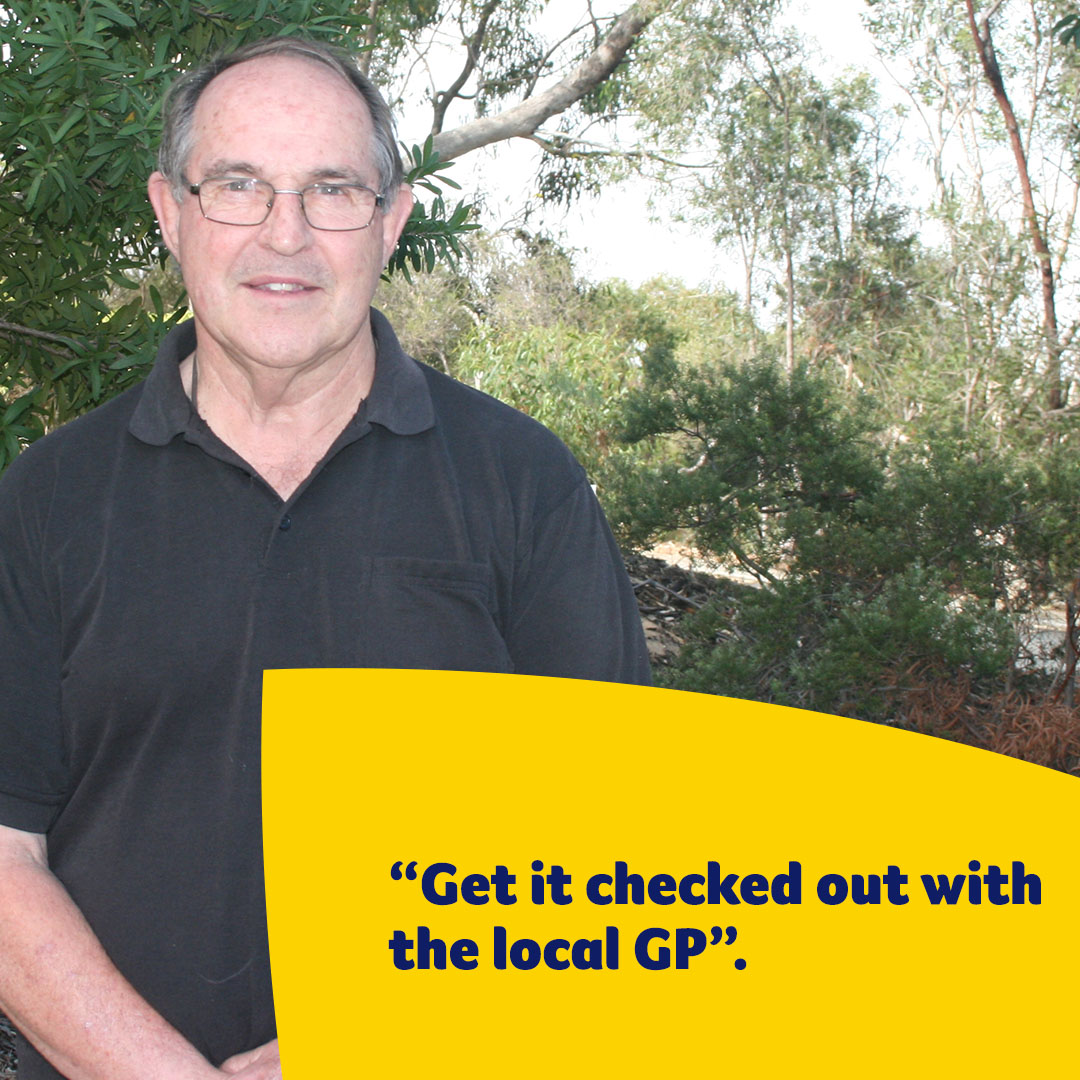Prostate cancer champion
Get it checked with the local GP.
Alan’s story
At age 73, Alan had noticed a few changes to his body. He’d noticed a new urgency to pee, made especially obvious on long road trips, and was also experiencing erectile dysfunction and needing to get up 2-3 times each night to pee. He decided his symptoms were probably abnormal, even at his age, and decided to visit his GP. Alan’s GP had been testing his prostate specific antigen (PSA) level along with other blood tests every two years for some time, and even though his PSA test was last completed 12 months before, Alan had a feeling about his symptoms and requested his GP test his PSA level ahead of schedule.
Based on his symptoms and PSA test result, Alan’s GP sent him to Perth for a biopsy after which he received the news that he had aggressive prostate cancer. Alan underwent robotic surgery in August 2018 to remove his prostate and the PSA test was repeated. To ‘clean up’ any last traces of cancer, Alan then commenced 35 days of radiation therapy over six and a half weeks. Fortunately, Alan has been able to stay at Cancer Council WA’s Milroy Lodge whilst in Perth for treatment. His wife remained in Albany throughout this period of radiation treatment and together, they’re using the time to research their family history.
Alan’s advice
‘If you’re not happy with what the GP tells you, go and see another GP’.
‘You’re not on your own. If you need assistance, it’s there’.
Prostate specific antigen (PSA) test
The PSA test measures the levels of PSA found in the blood. Normally, PSA stays within the prostate. Blood levels of PSA increase if the prostate is damaged.
The current PSA test is not a suitable population screen test. Unfortunately, we don’t have reliable medical proof that routine population testing does more benefit (increased prostate cancer survival) than harm (treating people who don’t need treatment and side effects of treatments).
Early detection of symptoms can significantly improve prostate cancer treatment. Men considering being tested for prostate cancer should do so with information on both the benefits and harms of testing and treatment. We encourage men to speak to their doctor, or phone the Cancer Council WA cancer nurses on 13 11 20, so that they can make an informed choice about PSA testing.
Men experiencing possible prostate cancer symptoms should tell their doctor, clinic nurse or Aboriginal health worker without delay.

